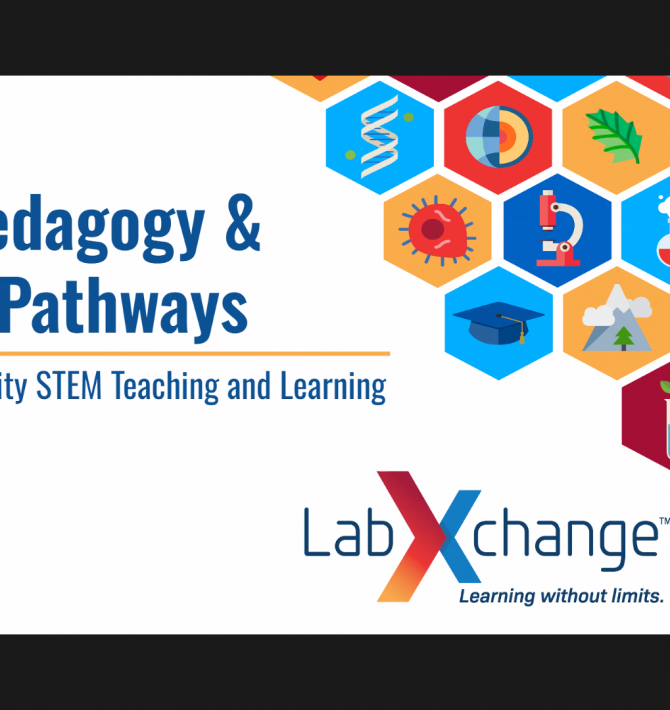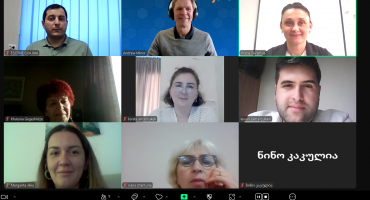With the Support of the World Bank, STEAM Teachers Received Orientation Trainings on Harvard University LabXchange Program
To enhance the STEAM teachers professional development and support the implementation of the STEAM extracurricular program in Georgian schools, the collaboration with the Harvard University program LabXchange has been initiated with the recommendation of the World Bank. This collaboration is part of the I2Q Project’s General Education component. LabXchange is a portal of learning resources for natural science subjects. Its partners are the leading educational organizations such as the Khan Academy, the Jackson Laboratory, etc.
Early in March 2024, an introductory meeting for the LabXchange program was held for Georgian teachers. 75 teachers from 80 pilot schools participating in ongoing STEAM extracurricular program attended the meeting. The teachers acquired information on platform’s aims and objectives. The platform generated significant interest among teachers, thus, the World Bank discussed further cooperation opportunities with the representatives of LabXchange program.
With support of the World Bank and Harvard University, the additional workshops were organized for selected teachers in Georgia. Ten Georgian STEAM teachers were trained in operation of the Lab Xchange platform. The online sessions were conducted by Andrew Minor, the International Consultant of the LabXchange Program, who provided detailed guidance on the interactive resources of the platform and the ways to integrate the resources into the curriculum for effective learning. The program’s resources, developed by Harvard University and other educational research centers and STEAM organizations are reliable, free, and can be tailored to individual needs.
The portal is open to all interested teachers and students. They can sign up, create a profile and workspace, and take advantage of all available resources. The portal allows users to create a virtual classroom, enroll students, conduct virtual training, share various resources (such as simulation tasks, information, books, and articles), and evaluate students. The available resources provide an opportunity for experiment, predict expected results in advance, and learn from mistakes made during simulations. It is important, that students can correct mistakes made during experiments by restarting working on them. In the virtual classroom, the teacher monitors the process and evaluates each student accordingly.
The portal is available in 17 languages. With the support of the Ministry of Education, Science and Youth of Georgia, the Georgian language will soon be added to navigation system of the portal. There are plans to translate the most useful resources of the portal into Georgian in the future.








